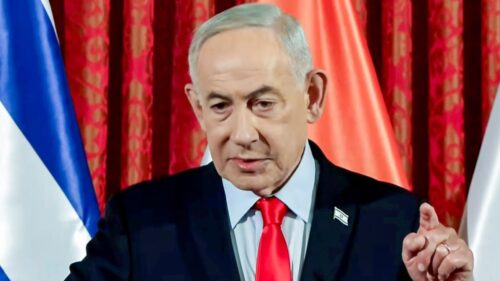
Peace haunted by the specter of war: Important points in the agreement between Armenia and Azerbaijan are completely bypassed, says Ecfr
Armenia and Azerbaijan have never been so close to peace—but bilateral issues and geopolitical complications mean a new escalation is still possible. The EU needs to use what levers it has to help the two countries ensure the former comes to pass, Marie Dumoulin, Director of the Wider Europe program, writes in her article in the European Council on Foreign Relations.
As noted, peace has not seemed so close since the end of the 1980s. But the specter of a new war also looms as near as ever.
The return of Donald Trump to the U.S. presidency saw Yerevan inject a new urgency into its bilateral discussions with Baku. In March, this led the two governments to agree on the text of a peace treaty. But, while the text incorporates some important concessions from Armenia, it does not even touch on the thorniest issues between the two countries. Baku has also introduced new conditions that mean the agreement is unlikely to be signed any time soon.
The world’s no less thorny geopolitical moment creates more risk—for Armenia and Azerbaijan, but also for the EU. It appears that the two countries are becoming increasingly involved in Middle Eastern dynamics, a development that could make an escalation between them more likely as long as the agreement remains unsigned. If the EU fails to help prevent such an escalation, the bloc’s own neighborhood—and a region that is vital for European energy security and connectivity projects—may remain trapped in its cycle of violence; or even become another playground for proxy confrontation between external actors.
The author of the article states that Trump likely translates into less American support for Armenia. This is due to cuts in US foreign assistance, but also because the Armenian diaspora in the US does not have strong connections with the MAGA movement. Trump has previous business dealings with Azerbaijan, and the expectation in Baku seems to be that its relations with Washington will thrive in a second Trump term. In anticipation of this, Armenia’s government tried to reach a quick agreement with Azerbaijan by accepting two of the latter’s key conditions.
First, once the agreement was signed, the EU’s border monitoring mission would withdraw. After the 2020 war, the EU had attempted to play an active role in mediating a settlement, deploying its mission on the Armenian side of the border in February 2023 (just a few months before Azerbaijan launched its offensive to take control of Nagorno-Karabakh). The Azeri leadership has long criticized the mission. But many Armenians see its removal as losing their insurance against provocations or an all-out attack, as well as giving up their only mechanism to ensure Azerbaijan does not breach the peace agreement. It is therefore a significant concession that bets on good faith in Baku to uphold the agreement.
Second, Armenia would abandon all legal cases against Azerbaijan in international courts. This has not proven popular in Armenia either. Yerevan’s legal claims center around such issues as the protection of the rights of prisoners of war and the Armenian cultural legacy in the region, as well as war crimes that Armenia accuses Azerbaijan of committing during the 2020 war. Dropping such cases looks to many Armenians like legitimizing Azerbaijani narratives and giving up the only trump card they could use vis-à-vis Baku. This, again, is a significant concession and a potentially risky wager.
Baku, however, has introduced two new demands as conditions for signing the agreement. The first is the formal dissolution of the OSCE Minsk Group, which had steered negotiations on Nagorno-Karabakh since 1992 with France, Russia and the US at the helm. The Armenian government had signalled openness to this step in the negotiations over the text, with the group having lost relevance since the 2020 war. The second condition asks for a constitutional revision in Armenia to delete any reference to Nagorno-Karabakh. Pashinyan has suggested such a revision could be on the cards. But, if voters saw this step as imposed from outside, it could create more difficulties for the prime minister domestically.
As mentioned, Armenia’s parliamentary election is due to take place in less than a year. With these new conditions, Baku could try to create a dilemma for Pashinyan—accept Azerbaijan’s demands despite the domestic risks (and with no guarantee that the agreement would be signed); or reject them and lose the prospect of a peace agreement altogether.
The author of the article says there are difficult issues the original text avoids entirely. Nagorno-Karabakh itself, for example, which is not an object of negotiations any more. Moreover, border demarcation between Armenia and Azerbaijan is negotiated through a parallel process. Pashinyan has already accepted difficult compromises as part of this process. But it could still take years to finalize. Finally, the most difficult issue of opening land communications (notably road and rail links) has been left to future talks.
This includes the connection between Azerbaijan and its Nakhijevan exclave between Armenia and the border with Iran. Armenia continues to push the “crossroads of peace” initiative, envisioning the reciprocal opening of all communications throughout the region and aiming to preserve each country’s sovereignty over its border and infrastructure. Azerbaijan, meanwhile, insists on the establishment of a corridor along the Armenia-Iran border. Such a corridor would give Baku unimpeded access to Nakhijevan and allow it to escape Armenian control. If Azerbaijan fails to achieve this goal through diplomatic pressure, it may be tempted to use force.
To address its perceived vulnerability, Armenia has cultivated new defense partners over recent years. These include Iran, but also such powers as India and France. This cooperation could alter Baku’s calculations on the costs of future military action, also leading it to launch an offensive sooner rather than later if political means seem insufficient.
India has become Yerevan’s largest defense supplier. From the Indian perspective, the development of this relationship was a direct reaction to Azerbaijan’s growing ties with Pakistan, including in the military sphere. Azerbaijan’s support for Pakistan and Armenia’s support for India on the Kashmir issue was mirrored in the respective stances of Islamabad and New Delhi regarding the Nagorno-Karabakh issue.
The two countries are also increasingly involved in Middle Eastern dynamics. Azerbaijan is deepening its ties with Israel and has considered joining the Abraham Accords. It has intensified its cooperation with Israel in energy, but also in defense and intelligence: Israel was the source of 69% of all Azerbaijani arms purchases between 2016 and 2020, and Israeli support likely played a major role in the 2020 and 2023 wars. Azerbaijan is also playing an active mediating role between Israel and Turkey, a development that has prompted concern in Yerevan and Tehran. Armenia, for its part, signed a $500m deal with Iran with Iran in July 2024 for the supply of military equipment, including Shahed drones. It conducted joint military drills with Iran in April 2025.
Rising tensions to the east may therefore result in renewed escalation between Armenia and Azerbaijan. For example, Armenian foreign policy watchers are concerned that Baku may try to gain support for a deal involving territorial concessions by Armenia in exchange for its support for Israel and the US in pressing Iran—or that Azerbaijan may resort to the use of force against Armenia in the event of a military escalation against Iran.
“Still, Armenia and Azerbaijan have a historic opportunity to end a war that has lasted for more than three decades; a conflict that has also increased their dependence on external actors, including Russia. Armenians have reservations about the sincerity of Azerbaijani leader Ilham Aliyev’s intentions to sign the peace agreement. This is due to the new conditions, but also accusations that Azerbaijan has violated the ceasefire as well as its continued aggressive rhetoric. But signing peace with Armenia would offer Aliyev the opportunity to transform the geopolitical outlook of the region and assert the country’s role as a regional power. Europeans should insist on this historic opportunity to use their levers. These come in the form of the EU’s presence on the border and through its connectivity projects and cooperation with both countries. This could all help Europeans incentivize the conclusion of the agreed text for the peace treaty and the normalization of communications in the region,” Dumoulin concluded.



